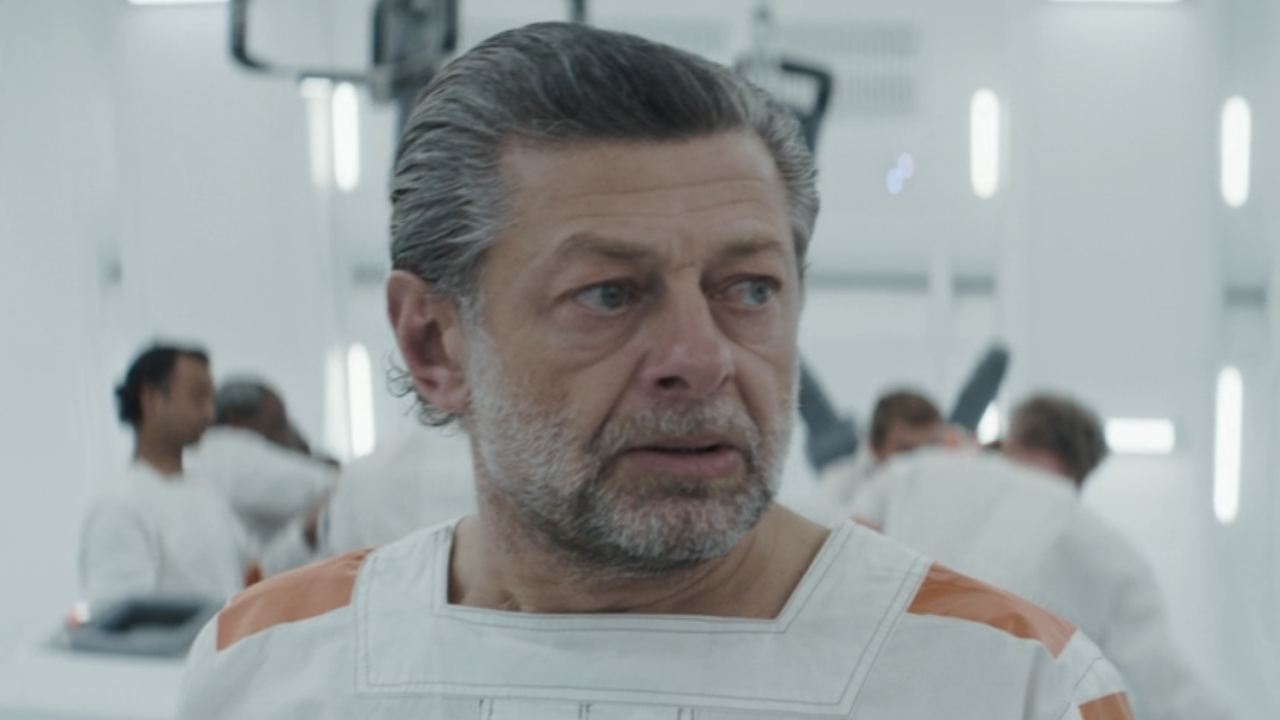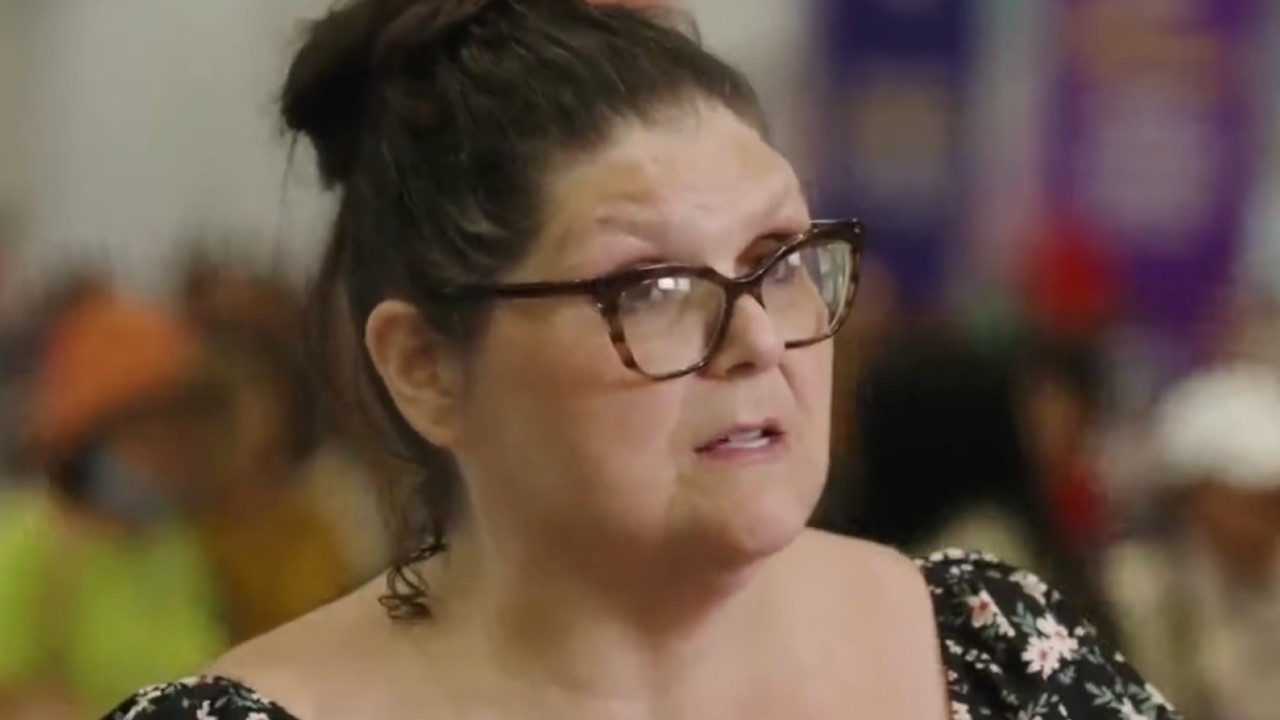Exclusive Interview: Andy Serkis, Part One

I was surprised to hear that Tintin, Peter Jackson and Steven Spielberg's adaptation of the Belgian comic strip, begins filming this week. This week! Hasn't this project been in development for so long you thought it would never be made? But this week Andy Serkis is preparing to step into the role of Captain Haddock, Tintin's hard-drinking but loyal best friend, even as his new movie, Inkheart, opens in theaters.
I spoke to Serkis last week, and while we talked a lot about his villainous role in Inkheart, he was generous enough to talk about Tintin and his return as Gollum in Lord of the Rings as well. I've included those parts of our conversation below, which includes his thoughts on both those top-secret projects, working with Doug Jones on The Hobbit, and the rise of motion-capture filmmaking in general. He also mentioned that he starts filming his next project, a biopic about English punk musician Ian Dury, in April, which means Tintin will be wrapped by then. That seemed like a mighty quick shooting schedule to me, but Serkis seemed confident that it would work for his old collaborator Jaskon. Check out the interview below, and look later this week for our conversation about Inkheart.
You have these two huge projects looming, with Tintin and The Hobbit. How do you schedule other projects in the meantime?
It's just the way luckily things are shaking down. Tin Tin starts shooting next week. It's actually starting, and I can't wait. I'm really excited.
Can you tell me anything about it?
I can't really say that much. They've asked me not to say that much.
Will there be three filmed at once, or will the trilogy go one at a time?
Your Daily Blend of Entertainment News
At the moment we're just doing the first one. I know three are slated, but I'm not sure how it will work in terms of timing.
And The Hobbit will work its way in there somehow?
Yeah, that will be the year after, or something like that. They're writing that at the moment. Guillermo del Toro is working with it, Peter's producing it. Guillermo's bringing his take on things. Middle Earth will feel like Middle Earth, but it will have his fresh take on it.
He's said that Doug Jones will have a part in it. Your work gets compared a lot, and I wondered if you had met and talked about it.
No, never. I really look forward to meeting him. I'm sure he'll be in it. I don't know who he'll be playing. I'm fascinated to have a good head-to-head with him.
Do you think of your work as having similar challenges, being motion-capture and working within puppets?
I never really think about the roles I played, using performance capture, as any different from live action. Any sort of role requires a certain amount of research and embodiment of the character and psychological investigation. Really it's just a different way of recording the performance. Form an acting point of view, I've never ever treated it any differently. You're a little bit more aware, I suppose, physically. you're puppeteering a digital creation. It feels almost as if you're wearing the prosthetic equivalent. For Kong, for instance, I could see what my facial expressions were doing to face, how it was literally manipulating those muscles. With Kong there were technical challenges, more than with Gollum.
There are a lot more people doing motion capture now than when you started with Gollum. Do you see this as being the wave of the future
I think it definitely will be used more and more in movies, also in games. I have directed performance capture [in games], and I'm doing more at the moment. For film and games, there is now a fantastic method of actors portraying characters which don't necessarily look like themselves. And yet you've still got the heart and soul of the performance. I can't see it not being used more and more. It's an extraordinary way of working, and you can achieve really interesting results.
Do you think audiences are getting more used to it?
I think they're beginning to understand it. I think they're beginning to understand what it's about. It's taken a long time, and a lot of talk, to sort of get it out there.
And you were doing it 10 years ago.
It's been a long process of education, I think. Getting audiences to think it's not animation, it's not Pixar, it's not teams of animators. It's just different. More films are happening, like Avatar, Robert Zemeckis's Christmas Carol. I don't think it will ever replace 35 mm and live-action performances, but it's a different medium. Sometimes it works well in live-action, like Lord of the Rings and King Kong. Specifically for the gaming industry, it's perfect.
Other than The Hobbit and Tintin, what else do you want to be doing?
I'm actually doing a film in April about the life of Ian Dury, who's a proto-punk rocker in the 1970s. He's an amazing character, a real poet. He sort of came up out of the British pub rock scene. He sort of pre-empted the Sex Pistols and the whole punk movement. And he was a polio sufferer, so he basically didn't have much use of his left leg or his left arm. The chance of being any kind of rock star is like zero [back then]. He was one of the first disabled punk rockers ever. I'm really looking forward to that.
I've heard other actors compare working in green screen to working in theater. Do you find that to be true?
I think that's true, absolutely. Because you get to play scenes in their entirety all the way through, without stopping for camera coverage. you can really build up the momentum and the reactions between the actors, in real time. You're not constantly having to stop. You get a good few runs at the scene.
Are there projects you want to develop yourself?
This year has been a big year for me in terms of transitioning to directing as well. I've set up projects with two other producers in the U.K. We've set up K-Man Films. I've written a story for one, and we're now bringing a writer on board. And I've got two other projects I'm aiming to direct in the next three years.
Read part two of our exclusive interview with Andy Serkis right here.
Staff Writer at CinemaBlend

